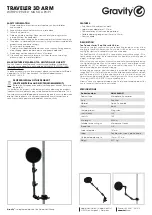
MI 2893 / MI 2892 / MI 2885
Measurement methods
196
U nominal
Swell limit
Dip
duration
U
dip
U
swell
half cycle period
(10 ms @ 50 Hz)
U
t
Dip limit
Interruption
limit
U
rms(1/2)
[n] U
rms(1/2)
[n+1]
U
int
Interrupt
duration
Swell
duration
E
v
e
n
t
h
y
s
te
re
s
is
In
te
rr
u
p
t
h
y
s
te
re
s
is
S
w
e
ll
h
y
s
te
re
s
is
Figure 160: Voltage events definition
Voltage dip
Standard compliance: IEC 61000-4-30 Class A (Sections 5.4.1 and 5.4.2)
The Dip Threshold is a percentage of Nominal voltage defined in CONNECTION menu. The Dip Threshold
and Hysteresis can be set by the user according to the use. Dip Hysteresis is difference in magnitude
between the Dip start and Dip end thresholds. Instrument event evaluation in Event table screen
depends on Connection type:
On single-phase system (Connection type: 1W), a voltage dip begins when the U
Rms(1/2)
voltage
falls below the dip threshold, and ends when the U
Rms(1/2)
voltage is equal to or above the dip
threshold plus the hysteresis voltage.
On poly-phase systems (Connection type: 2W, 3W, 4W, Open Delta) two different views can be
used for evaluation simultaneously:
o
Group view
with selected ALL
INT
view (in compliance with IEC 61000-4-30 Class A):
a dip begins when the U
Rms(1/2)
voltage of one or more channels is below the dip
threshold and ends when the U
Rms(1/2)
voltage on all measured channels is equal to or
above the dip threshold plus the hysteresis voltage.
o
Phase view Ph. (for troubleshooting): a voltage dip begins when the U
Rms(1/2)
voltage of
one channel falls below the dip threshold, and ends when the U
Rms(1/2)
voltage is equal to
or above the dip threshold plus the hysteresis voltage, on the same phase.
















































